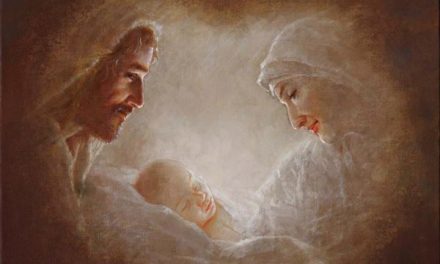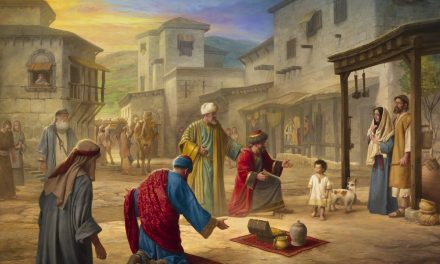
By the time we get to the Acts of the Apostles we have read about 3 Herods. It’s easy to get them mixed up. They were all pretty interesting men, so let’s get them straight.
Keeping your Herods Straight in the New Testament
By the time we get to the Acts of the Apostles we have read about 3 Herods.
It’s easy to get them mixed up. They were all pretty interesting men, so let’s get them straight.
Herod the Great
Herod the Great was the (puppet) King of Judea at the time that Christ was born. The Jews hated him, because although he claimed to be Jewish, he really wasn’t. He was an Idumean, which means he was a descendent of Esau, not Jacob. Not only not Jewish, but not even an Israelite! His ancestors had converted (possibly by force), but that wasn’t enough for the people of Judea. Herod obtained his position because his father Antipater was close to Julius Caesar. Herod also was ambitious but his assignment was a bit of a surprise. Herod tried to lift his popularity by marrying Mariamne, who was descended from the Maccabees and the Jewish Hasmonean dynasty. To do that, he had to banish his first wife Doris and her son. Herod the Great was actually very successful as a ruler, especially since his “kingdom” was really diverse, and he had many kinds of people to please. (Many citizens of Israel at the time were Greek.) He built the glorious temple complex and much more. But he also murdered the innocent babies of Bethlehem (trying to do away with Christ―Matt 2: 16), and several members of his own family, including Mariamne. He was also ruthless when there was unrest.
Herod Antipas
Herod Antipas was the Tetrarch of Galilee and Perea. He was a son of Herod the Great. Antipas divorced his first wife Phasaelis so he could marry Herodias, who had been married to his half-brother Herod II. This really bothered John the Baptist, who accused Antipas of adultery. Antipas had John beheaded for preaching against him. Pontius Pilate was governing in Judea when the Jewish leaders brought Jesus to him and accused Him of treason. Pilate hoped to pass the responsibility to Antipas, since Jesus was a Galilean and Herod Antipas was in Jerusalem for Passover. Antipas was actually quite excited to see Jesus. He had heard about Him and was hoping to witness a miracle. But Jesus kept His silence and Antipas sent Him back to Pilate. Pilate sent Christ to crucifixion under the pressure of the Jewish leaders.
Herod Agrippa I
Herod Agrippa was a grandson of Herod the Great and nephew of Herod Antipas. He was the King of Judea mentioned in Acts. He had a larger amount of territory to govern than his uncle and grandfather. Agrippa’s territory comprised most of modern Israel, including Judea, Galilee, Batanaea and Perea. Agrippa had a colorful past. He spent years in Rome (where the rich sent their sons for school) but couldn’t control his spending. His uncle Antipas kept him afloat financially. Tiberias was ruling in Rome, but Agrippa liked Caligula. Agrippa was thrown into prison. There he had a vision of an owl on a rope. He knew the vision meant good fortune, but that if he ever saw it again, it would mean his doom. That good fortune was that he was released from prison, Tiberius died in 37 A.D., and Caligula got to be emperor. Caligula gave Israel to Agrippa to rule. We read about Herod Agrippa in Acts 12: It was about this time that King Herod arrested some who belonged to the church, intending to persecute them. He had James, the brother of John, put to death with the sword. When he saw that this met with approval among the Jews, he proceeded to seize Peter also. This happened during the Festival of Unleavened Bread (NIV Acts 12:1 – 3). So Herod Agrippa was admired by the Jews of Judea because he persecuted the Christians. After Passover in 44, Agrippa went to Caesarea, where he had games performed. He wore a robe completely made of silver that glinted in the sun to glorious effect. In the middle of his speech to the public a cry went out that he was a god, and Agrippa did not publicly react. At this time he saw an owl perched over his head and knew he would die. He immediately experienced heart pains and a pain in his stomach and essentially rotted to death, dying within five days. The people kept shouting, “The voice of a god, and not of a mortal!” And immediately, because he had not given the glory to God, an angel of the Lord struck him down, and he was eaten by worms and died (Acts 12: 22 – 23). If you take a look at Acts 13:1, you are introduced to a church leader named Manean, who grew up with Paul and Agrippa I. So Paul and Agrippa were originally friends and may have gone to school together in Jerusalem.
Herod Agrippa II
The son of Herod Agrippa I, this is the Agrippa who held an audience with the apostle Paul in Caesarea after Paul was arrested in Jerusalem. Agrippa saw no guilt in Paul and would have released him if Paul had not appealed to Caesar. Agrippa is the one who said to Paul, “Almost you persuade me to be a Christian.” Agrippa was still ruling in Israel when the Jews began to rebel in 66 A.D. In 70 A.D. the Roman general Vespasian was sent in and his troops completely destroyed Herod the Great’s temple, and killed and scattered the Jews. There were a few Jewish fighters remaining who revolted later on, but 70 A.D. was the literal end of their social unit and the beginning of the “diaspora,” the scattering of the Jews into exile.





